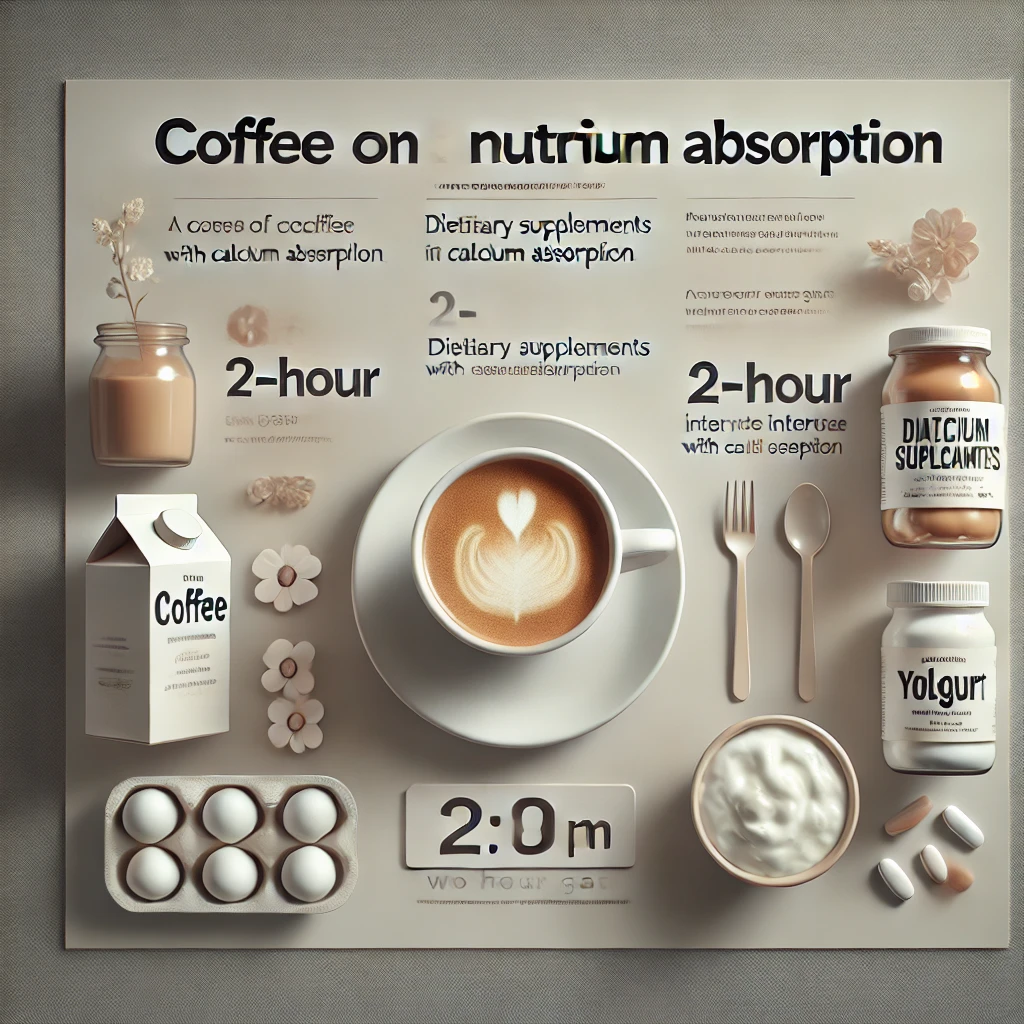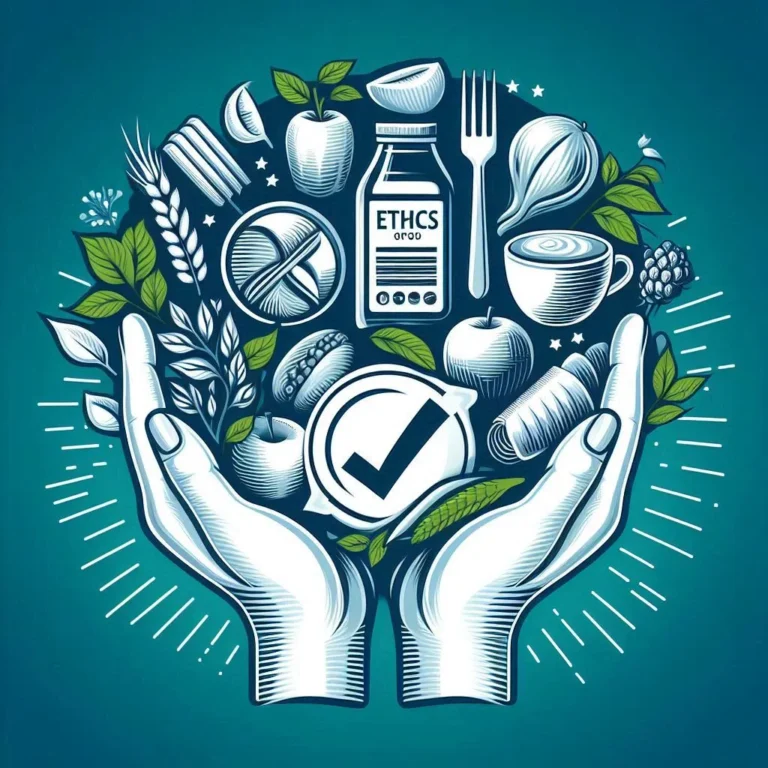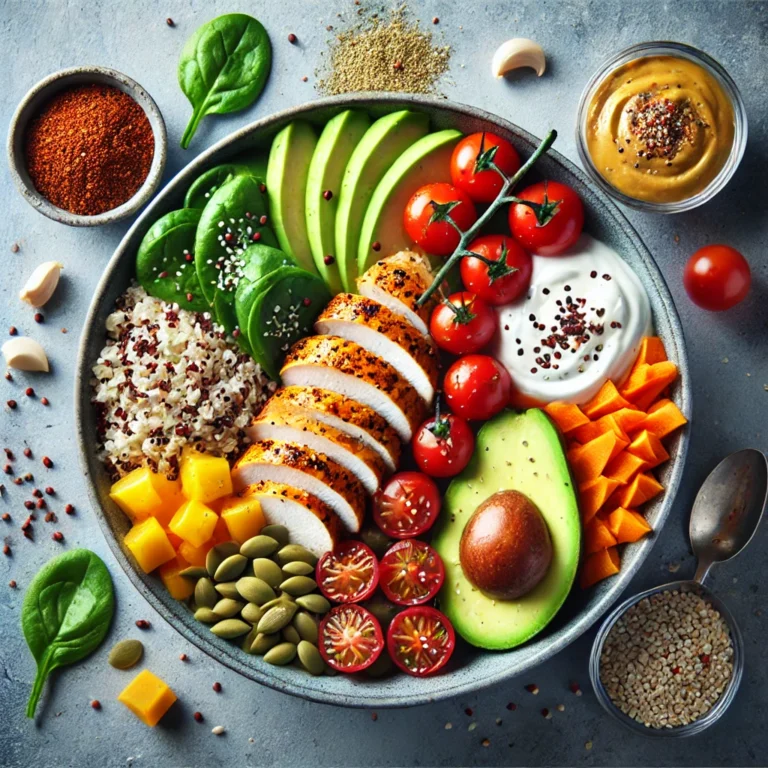*This post may contain affiliate links for which I earn commissions.*
Coffee lovers rejoice, but with a bit of caution: the beloved morning ritual may not always be as healthy as it seems when paired with certain foods. Coffee, a staple in many households, brings about a burst of energy and a sense of comfort. Yet, some combinations could hinder its benefits or even have negative impacts on health. Misconceptions abound about coffee flushing out essential nutrients, but the truth often lies in what you’re enjoying alongside your cup. By understanding which pairings to avoid, like certain dairy or iron-rich foods, you’ll get coffee’s full boost without unwanted downsides. Whether you’re a casual sipper or a dedicated brew enthusiast, knowing these combinations can help you sip smarter and healthier.
The Impact of Coffee on Nutrient Absorption
Ever wonder how your morning cup of coffee might affect the nutrients your body absorbs? While coffee is a beloved morning ritual for many, it’s important to understand that it can influence the way the body absorbs certain nutrients. Here’s how coffee interacts with vital nutrients like iron, calcium, and B vitamins and why avoiding certain combinations might be beneficial for your health.

Never Mix Coffee with Certain Nutrients
Coffee is a well-known energizer, but it can play havoc with nutrient absorption. While it doesn’t flush vitamins out of your body, it does limit the uptake of some. It’s generally best to keep coffee away from medications and dietary supplements, especially within two hours of taking them. This precaution can help ensure that you get the full benefits of your medications.
Also, coffee may interfere with calcium absorption. So, consuming it with dairy-rich meals such as yogurt, cottage cheese, or calcium-rich foods might not be a good idea. Although mixing coffee with milk is often enjoyed, make sure not to overindulge with more than three cups to prevent calcium level disturbances in the blood.
Iron Absorption and Coffee
Coffee has a funny way of being a roadblock for iron absorption, especially when you pair it with iron-rich foods like legumes. According to studies, drinking coffee with meals can reduce iron absorption by up to 90%.
For more on how coffee affects iron levels, check out this Healthline article on iron absorption.
Calcium and Coffee
Say goodbye to bones of steel if you consume excessive amounts of coffee. Caffeine can interfere with calcium absorption, making it a potential issue for your bones. According to researchers, too much caffeine could increase calcium loss, which is troubling news for your skeleton’s structural integrity. To keep your bones strong, balance your coffee intake with calcium-rich foods and consider waiting a couple of hours between indulging in your beloved brew and eating your calcium-loaded breakfast.
Learn more about the relationship between caffeine and osteoporosis from Medical News Today.
Vitamin B and Coffee
Feeling the buzz might come at a cost to your B vitamin levels. Coffee is known to reduce the absorption of certain B vitamins, such as B6 and B12, which are crucial for energy and brain health. If you’re a heavy coffee drinker, you might need to adjust your diet or timing to ensure you’re getting all the nutrients you need.
Studies such as those by NCBI elaborate on how coffee consumption can affect B-vitamin levels. Balancing your intake might require some thoughtful planning, particularly if you rely on these vitamins to support your daily activities.
By being mindful of your coffee habits and the timing of your nutrient intake, you can enjoy coffee while optimizing your body’s nutrient absorption.
Foods to Avoid Pairing with Coffee
When thinking about your daily coffee habit, it’s not just about what you add to it but also what you eat with it. Some food combinations can downright interfere with coffee’s health perks. Let’s explore a few common foods you might want to keep separate from your favorite brew.
Legumes and Iron-Rich Foods
While beans, lentils, and chickpeas are great for your diet, they may not mix well with your morning cup of coffee. Coffee is known to reduce the absorption of non-heme iron — the type found in plant-based foods. So, grabbing a coffee right after consuming iron-rich legumes might mean you’re missing out on vital nutrients. If you’re a vegetarian or rely heavily on plant-based iron, consider having coffee an hour before or after meals to maximize iron uptake.
Dairy Products
Nothing beats the classic pairing of coffee and a splash of milk or cream. But did you know adding dairy can dampen some benefits of coffee? Milk may interfere with the absorption of antioxidants in coffee. If you love the creamy texture and taste, try alternatives like plant-based milks, which don’t have the same effects.
High-Fiber Foods
Eating whole grains, seeds, or fiber-rich bars alongside coffee might not be the best choice either. Fiber slows digestion, which is great for steadying blood sugar levels but may also slow the absorption of beneficial compounds in coffee. You don’t have to cut out fiber — instead, enjoy your fiber-rich foods at a separate mealtime to fully benefit from both. I have written many articles that conclude coffee is good for most people, even Coffee What it Does To Senior bodies doesn’t conclude that coffee has to be avoided all together
For more insights on how coffee pairs with foods and iron absorption, visit Healthline and PubMed.
Alternatives and Healthier Combinations
Looking to enhance your coffee experience while also boosting your health? Let’s explore some smart combinations that can help you absorb more nutrients and give your body the extra goodness it deserves.
Pairing Coffee with Healthy Fats Improves Nutrition Absorption
Coffee isn’t just a morning booster; when paired with the right ingredients, it can be part of a nutritious diet. Combining coffee with healthy fats like nuts or avocado can improve nutrient absorption and fulfill your morning routine.
- Nuts: Consider enjoying a handful of almonds or walnuts with your coffee. These nuts are rich in healthy fats and can keep your hunger at bay, preventing unnecessary snacking throughout the day. Butter Coffee has gained popularity for similar reasons, especially in ketogenic diets.
- Avocado: Adding a slice of avocado toast to your coffee routine can work wonders. Avocado is loaded with good fats, which can help your body absorb fat-soluble vitamins better.
By incorporating these healthy fats, you enhance your coffee and add valuable nutrients to your diet. It’s a small change that can make a big difference in how you feel throughout the day.
Recipe for Butter Coffee.
Butter coffee, often associated with the ketogenic diet, is a rich and creamy beverage that combines coffee with healthy fats like butter and sometimes coconut oil or MCT oil. Here’s a simple recipe for making butter coffee at home.

Organic MCT OIL

Pros
- Boosts energy levels and mental clarity.
- Enhances gut health by improving digestion.
Cons
- Can lead to weight gain if you take more than the recommended dose
- A minority of people get indigestion
Butter Coffee Recipe
Ingredients:
- 1 cup (240 ml) of brewed coffee (use your favorite coffee beans or ground coffee)
- 1-2 tablespoons of unsalted grass-fed butter, or organic butter (such as Kerrygold)
- 1 tablespoon of coconut oil or MCT oil (optional, for additional healthy fats)
- Sweetener to taste (optional, like stevia or a sugar substitute)
- 1/2 teaspoon vanilla extract (optional, for extra flavor)
- A pinch of cinnamon or cocoa powder (optional, for added flavor)
Instructions:
- Brew the Coffee:
- Start by brewing a fresh cup of your favorite coffee. Make it as strong as you like.
- Add Butter and Oil:
- Pour the hot coffee into a blender.
- Add 1-2 tablespoons of unsalted grass-fed butter.
- Add 1 tablespoon of coconut oil or MCT oil if using.
- Blend the Coffee:
- Blend the mixture on high for about 20-30 seconds until it becomes frothy and creamy. This step is important because it emulsifies the fats into the coffee, giving it a smooth, latte-like texture.
- Sweeten and Flavor:
- If you like your coffee sweet, add your preferred sweetener to taste.
- For additional flavor, you can add vanilla extract and a pinch of cinnamon or cocoa powder before blending.
- Serve:
- Pour the butter coffee into a mug and enjoy it while it’s hot.
Tips:
- Blending: Make sure to blend the coffee and fats properly to avoid a greasy texture.
- Adjusting Fats: You can adjust the amount of butter and oil to suit your taste and dietary needs.
- Experiment: Feel free to experiment with flavors like adding a dash of nutmeg or a shot of espresso for a stronger coffee flavor.
Butter coffee is a great way to start the day with a boost of energy and healthy fats, especially if you follow a low-carb or ketogenic diet.
Coffee with Antioxidant-Rich Foods
Did you know that coffee is one of the richest sources of antioxidants in many diets? But why stop there? Pairing it with fruits and vegetables high in antioxidants can multiply the health benefits.
- Berries: Try adding a side of blueberries or strawberries to your coffee. These fruits are packed with powerful antioxidants that can protect your body from damage caused by free radicals. Read more about coffee and antioxidants to understand how they complement each other.
- Dark Leafy Greens: Consuming a salad or smoothie with ingredients like spinach or kale alongside your coffee can also be beneficial. These greens are well-known for their antioxidant properties, making them a perfect pairing with your morning cup.
Thoughtfully pairing your coffee with antioxidant-rich foods can support your body’s natural defenses and contribute to overall well-being. It’s about making enjoyable choices that are good for your health, turning your coffee time into an opportunity for nourishment.
“Coffee is a great power in my life; I have observed its effects on an epic scale. Coffee is the drink of men of talent and genius. Never mix it with anything that might dull its effect.”
Honoré de Balzac,
Foods to Avoid with Coffee
Pairing your favorite cup of joe with certain foods might seem harmless, but some combinations can hinder the health benefits of your coffee. While coffee is a cherished morning ritual for many, it’s essential to understand how it interacts with various foods. Knowing what to avoid can ensure you reap the maximum benefits from your coffee drinking experience.
Legumes: A Nutritional Clash
Did you know that your steaming mug of coffee might be sabotaging your effort to boost iron intake? Legumes like peas, beans, and chickpeas are packed with iron, an essential mineral. However, coffee can interfere with iron absorption, potentially leading to deficiencies over time. Keep these tasty beans on your plate, but consider having them at a different meal without coffee to ensure you absorb all the iron you need. Learn more about the impact of coffee on iron absorption.
Zinc-Rich Foods: Not the Best Buddy
Foods high in zinc, like seafood, pork, lamb, eggs, and cheese, don’t play well with coffee either. Zinc is vital for your immune system and skin health, and drinking coffee can block its absorption. The combination might not seem like a big deal, but over time, it could lead to deficiencies. If you’re planning a meal featuring zinc-rich ingredients, it’s better to skip the coffee or save it for a later time. Read about how coffee affects zinc absorption.
Dairy Products: A Sour Affair
Who doesn’t love a creamy coffee? However, pairing dairy with your coffee might not be the best choice. Some people find that milk and cream can clash with coffee’s acidity, leading to digestion issues. This doesn’t mean you must give up your beloved latte—just be mindful if you often experience stomach discomfort after consuming dairy with coffee. Read more about foods that don’t pair well with coffee.
Key Takeaways
- Avoid Sugary Additives: As tempting as that caramel latte may seem, sugar-loaded syrups can turn a healthy coffee into a dessert-like beverage. Healthline advises against sugary additions, as they can negate the health benefits of coffee altogether.
- Skip Artificial Creamers: Many artificial creamers contain unhealthy trans fats and added sugars. Opt for plant-based milk like almond or oat milk instead for a healthier alternative.
- Watch For Caffeine Overload: Mixing coffee with other caffeinated beverages, like energy drinks, can lead to excessive caffeine intake, which might cause jitteriness, insomnia, and increased heart rate. Quora mentions the negative impact of pairing coffee with other stimulant drinks.
Conclusion on Coffee Combinations for Optimal Health
Before you pour that next cup of coffee, think about your choices in crafting your drink. While coffee itself has many health benefits, certain combinations can diminish these benefits or even lead to adverse health effects. Choosing to drink coffee wisely and being mindful of what you mix it with can make all the difference in reaping its rewards. Being thoughtful about these combinations can help ensure that your coffee habit supports rather than detracts from your overall health. When consumed correctly, coffee can be a delightful part of your daily routine that boosts your mood, increases your alertness, and aids in physical performance. Adopting mindful habits with your coffee consumption can lead to a healthier lifestyle. Embrace your coffee and enjoy it with all its benefits but don’t mix it with the above substances.
Frequently Asked Questions for Coffee Pairings to Avoid for Maximum Health Benefits






